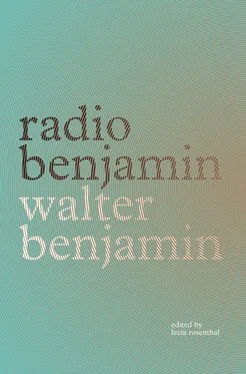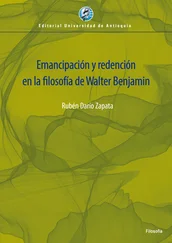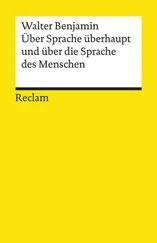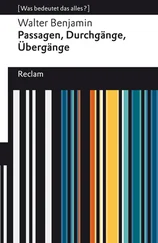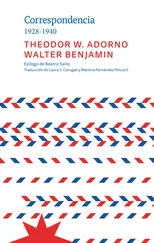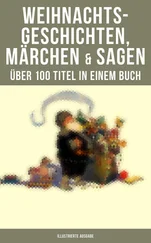No one paid much attention to Medor, because no one knew him or could guess his pain. His master must have been one of the many foreigners that came to Paris in those days, fought unnoticed for the freedom of his homeland, bled there, died there, and was buried anonymously. Only after several weeks did people begin to take notice of Medor. He was emaciated about the ribs and covered in festering wounds. People gave him food, but for a long time he refused it. Finally the persistent compassion of a good townswoman succeeded in alleviating Medor’s grief. She took him in, bandaged and healed his wounds, and made him strong again. Medor was more content, but his heart lay in his master’s grave, where his caretaker took him after his recovery and where he would stay for the next seven months. A few times greedy people sold him to rich curiosity seekers; once he was taken thirty hours from Paris, but he always found his way back. Medor is often seen unearthing a small piece of fabric; he becomes excited upon finding it and then sadly reburies it. It’s probably a piece of his master’s shirt. If he’s given a piece of bread or cake, he buries it in the ground, as if wanting to feed his friend in the grave, and then retrieves it, repeating this process several times a day. For the first few months the national guardsman at the Louvre would invite Medor into the guardhouse every night. Later on the guard saw to it that a hut was built for Medor beside the grave.
Medor quickly found his Plutarch, his rhapsodists, his painters. When I visited the square in front of the Louvre, peddlers offered me Medor’s life story, songs of his exploits, his portrait. For ten sous I purchased Medor’s immortality. The little graveyard was surrounded by a thick wall of people, all poor folks from the street. Here lies buried their pride and joy. This is their opera, their ballroom, their court, their church. They’re thrilled to get close enough to pet Medor. I too managed to edge my way through the crowd. Medor is a large, white poodle. I bent down to pet him, but he took no notice of me; my jacket was too fine. But when approached and stroked by a man in rough clothes, or a ragged woman, he responded warmly. Medor knows very well where to find the true friends of his master. A young girl, all in tatters, came to him. He jumped up to greet her, clung to her and wouldn’t let go. He was so happy, so at ease with her. To ask something of the poor girl, he didn’t need to first bend before her and touch the hem of her skirt as with a groomed and genteel lady. Wherever he bit at her dress was a rag that fit snug in his mouth. The child was very proud of Medor’s familiarity with her. I crept away, ashamed of my tears. 7
And with this we are through with dogs for the day.
“Wahre Geschichten von Hunden,” GS, 7.1, 243–9. Translated by Jonathan Lutes.
Broadcast on Radio Berlin, September 27, 1930. Benjamin dated the typescript “Berlin Radio, September 27, 1930. “The Funkstunde announced the broadcast for this date from 3:20–3:40 pm.
1Linnaeus as quoted in A. E. Brehm, Die Haushunde: mit einem Anhang: Zur Stammesgeschichte der Haushunde [Household Dogs: With an Addendum on the Phylogeny of Household Dogs] (Leipzig: Reclams Universal Bibliothek, 1923), 33ff. For this passage as well as those that follow from Brehm and Czibulka, Benjamin’s typescript refers to the text he wanted to cite by title but does not give the full quotation, which was supplied by the editors of the GS, who also note that Benjamin was unlikely to have had time in the twenty-minute broadcast to read these passages in full (GS, 7.2, 584).
2Brehm, Die Haushunde, 43.
3Ibid., 96–8.
4Alfons von Czibulka, Der Hundespiegel: Eine Auswahl [Reflections on Dogs: A Selection] (Munich: Drei Masken Verlag, 1923), 299.
5See Czibulka, Der Hundespiegel, 302ff.
6Karl Ludwig Börne (1786–1837) was a German-Jewish writer, journalist, and satirist.
7See Czibulka, Der Hundespiegel, 225–7, and Ludwig Börne, Briefe aus Paris 1830–1831, Gesammelte Schriften, vol. 2 (Hamburg: Hoffmann and Campe, 1832), 138ff.
CHAPTER 29. A Crazy Mixed-Up Day: Thirty Brainteasers
Perhaps you know a long poem that begins like this:
Dark it is, the moon shines bright,
a car creeps by at the speed of light
and slowly rounds the round corner.
People standing sit inside,
immersed they are in silent chatter,
while a shot-dead hare
skates by on a sandbank there.
Everyone can see that this poem doesn’t add up. In the story you’ll hear today, quite a few things don’t add up either, but I doubt that everyone will notice. Or rather, each of you will find a few mistakes — and when you find one, you can make a dash on a piece of paper with your pencil. And here’s a hint: if you mark all the mistakes in the story, you’ll have a total of fifteen dashes. But if you find only five or six, that’s perfectly alright as well.
But that’s only one facet of the story you’ll hear today. Besides these fifteen mistakes, it also contains fifteen questions. And while the mistakes creep up on you, quiet as a mouse, so no one notices them, the questions, on the other hand, will be announced with a loud gong. Each correct answer to a question gives you two points, because many of the questions are more difficult to answer than the mistakes are to find. So, with a total of fifteen questions, if you know the answers to all of them, you’ll have thirty dashes. Added to the fifteen dashes for mistakes, that makes a total of forty-five possible dashes. None of you will get all forty-five, but that’s not necessary. Even ten points would be a respectable score.
You can mark your points yourselves. During the next Youth Hour, the radio will announce the mistakes along with the answers to the questions, so you can see whether your thoughts were on target, for above all, this story requires thinking. There are no questions and no mistakes that can’t be managed with a little reflection.
One last bit of advice: don’t focus on just the questions. To the contrary, keep a lookout for the mistakes above all; the questions will all be repeated at the end of the story. It goes without saying that the questions don’t contain any mistakes; there, everything is as it should be. Now pay attention. Here’s Heinz with his story.
What a day! It all started early this morning — I had hardly slept a wink, because I couldn’t stop thinking about a riddle — anyway, the doorbell rang early. I opened the door and there was my friend Anton’s deaf housekeeper. She handed me a letter from Anton.
“Dear Heinz,” writes Anton, “yesterday, while I was at your house, I left my hat hanging by the door. Please give it to my housekeeper. Best regards, Anton.” But the letter continues. Below he writes: “I just now found the hat. Forgive the disturbance. Many thanks for your trouble.”
That’s Anton for you, the absent-minded professor type. By the same token, he’s also a great fan and solver of riddles. And when I looked at the letter, it occurred to me: I could use Anton today. Perhaps he knows the solution to my riddle; I made a bet that I would figure out the riddle by this morning. The riddle goes like this ( Gong ):
The peasant sees it often, the king only seldom, and God never at all. What is it?
Yes, that’s it, I thought to myself, I have to ask Anton. I was hoping to ask his housekeeper whether he was already at school — Anton is a teacher — but she had already left.
I thought to myself, Anton must be at school. I put on my hat and just as I was heading down the stairs, it occurred to me that summer daylight saving time began today, so everything starts an hour earlier. I pulled out my watch and set it back one hour. When I reached the street, I realized that I had forgotten to shave. Just around the corner to the left I saw a barbershop. In three minutes I was there. In the window hung a large enamel sign: “A shave today ten pfennigs, a shave tomorrow free.” ( Gong ): A shave today ten pfennigs, a shave tomorrow free. The sign struck me as odd. I wish I knew why. I went in, took a seat and got a shave, all the while looking in the large mirror hanging before me. Suddenly the barber nicked me, on my right cheek. And sure enough, blood appeared on the right side of my mirror image. The shave cost me ten pfennigs. I paid with a twenty-mark note and got back nineteen marks in five-mark coins, along with five groschen and twenty five-pfennig coins. Then the barber, a jolly young man, held open the door and said to me as I went out: “Say hello to Richard if you see him.” Richard is his twin brother who has a pharmacy on the main square.
Читать дальше
